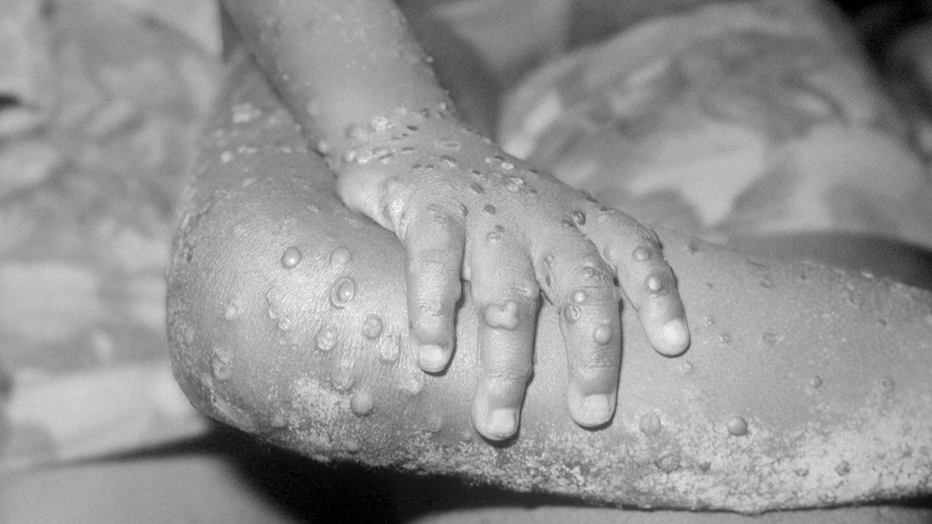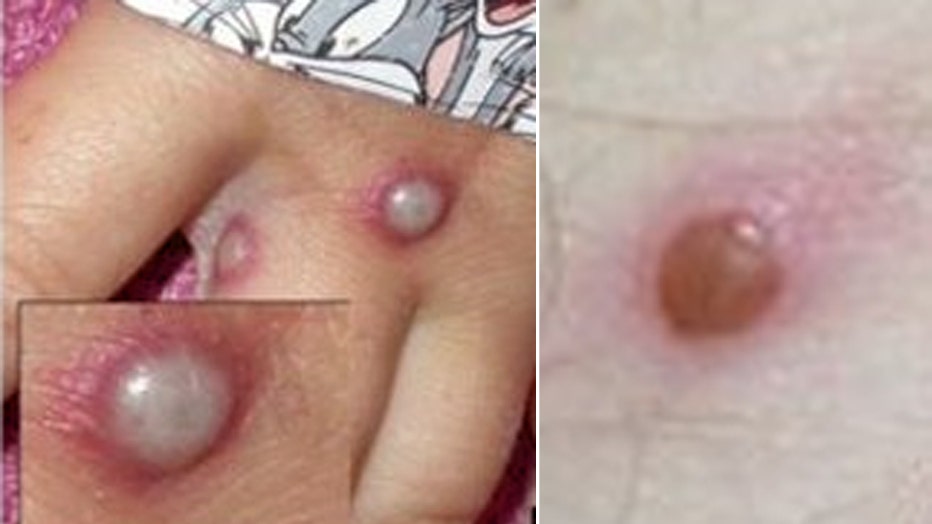Monkeypox in Florida: Monitoring continues as cases reach nearly 250

Previous: Florida Department of Health gives monkeypox update
One Florida community is concerned about the lack of monkeypox vaccines.
NEW PORT RICHEY, Fla. - Tampa Bay area health officials are monitoring the nationwide monkeypox outbreak and say they will offer a vaccine when doses become available to those in ‘high-risk groups.’
The Department of Health - Pasco County said Friday it was monitoring the outbreak, however, no cases have been reported in the county, to date.
So far, the virus has sickened people in 43 U.S. states, with more than a dozen cases reported in the Tampa Bay area.
Of nearly 250 cases reported across Florida, four were in Hillsborough County, 12 were in Pinellas, three were in Polk, and one was in Sarasota County.

In this 1971 Center For Disease Control handout photo, monkeypox-like lesions are shown on the arm and leg of a female child in Bondua, Liberia. (Photo Courtesy of the CDC/Getty Images)
PREVIOUS: More than 200 Monkeypox cases reported with limited vaccine supply, Florida health officials say
DOH-Pasco was not able to say when the vaccine would be available for local residents, adding that the federal government was responsible for disbursement of the vaccine.
State data on monitoring of the monkeypox virus and other communicable diseases and health threats is available at FloridaHealth.gov and FLHealthCharts.gov.
RELATED: Monkeypox vaccine supply can't keep up with demand as cases rise
Monkeypox, a member of the orthopox family of viruses, is an infection accidentally transmitted to humans due to its similarity to the smallpox virus and causes lesions on the skin.

Monkeypox lesions (Photos courtesy: CDC)
Monkeypox symptoms are similar to smallpox symptoms, but milder, and monkeypox is rarely fatal. Monkeypox is not related to chickenpox, according to the CDC.
According to DOH - Pasco, human-to-human transmission of monkeypox generally requires prolonged, face-to-face contact, direct contact with lesion materials, or indirect contact with lesion materials through contaminated items, such as contaminated clothing. Therefore, the risk of exposure remains low.

